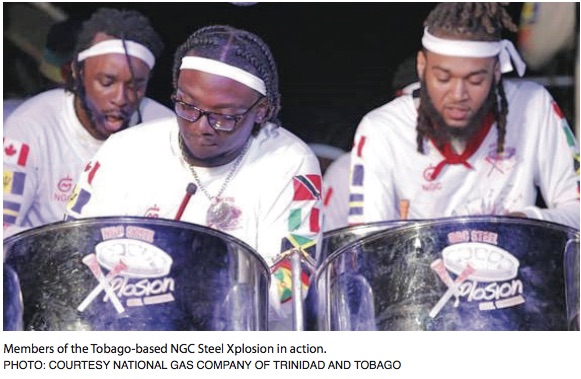Remote music literacy training for steelbands
Pannists from several bands in Trinidad and Tobago will soon be equipped to independently create music with the skills they learn through a new Remote Training in Music Literacy programme.
Developed by The UWI’s Department of Creative and Festival Arts (DCFA) and funded by the bands’ sponsor, The National Gas Company of Trinidad and Tobago Limited (NGC), the programme will greatly enhance the skillsets and marketability of the participating musicians. It will allow them to be certified by the Associated Board of the Royal Schools of Music (ABRSM), one of the world’s premier associations for music certification.

Participating in this training will be members of Trinidad-based NGC Couva Joylanders, NGC La Brea Nightingales, and NGC Steel Xplosion, based in Tobago.
NGC Corporate Social Responsibility (CSR) Officer Alister Narinesingh noted that NGC wants to build capacity within these bands and develop players who are capable of reading music notations to operate at the highest professional level.
“This programme builds on previous work we have been doing in that regard, with one important difference,” he explained. “Previously, the training was delivered by various providers. Now we can offer a standardised training programme from an accredited institution to all our steelbands.”
“The band members will receive training and certification over time in at least the first five grades offered by the ABRSM,” stated Jessel Murray, Senior Lecturer, DCFA. “That will actually take them to the basic requirements for getting into a degree programme at any of the tertiary education institutions that offer music.”
Murray explained that the training will help fill a void in local music education and will instil valuable life skills. The students will learn to translate “written music scores into playing music scores rather than always relying on the services of an arranger or driller”. He hopes the programme will help sustain the steelpan community.
“Too often in the steelpan world, we find that the musicians are dependent upon one or two persons within a panyard – that’s the arranger et al,” said Murray. “We want to build independent capacity.”
Myles Lewis, Head CSR, NGC, echoed the senior lecturer’s sentiments. “The ultimate goal of this programme is sustainability. Not only do we want to see these pannists grow as musicians, but through their skillsets, their bands must grow into viable businesses, capable of innovating and attracting people to pan. Being able to read and write music will also allow for preservation of music that could otherwise be lost in oral tradition. For our industry to live on, our heritage must be carried through to the future.”
Murray envisions that the skills and certification the students acquire could also ensure future employment: “We want to get them trained to be assistants and to be, of course, teachers of the future within the panyards.”
Participants will be screened to determine their skill level, as some are primary and others secondary school students. The tutors guiding the students locally are recent DCFA graduates Samantha Joseph and Christopher Sookhoo, as well as Joshua Joseph, an adjunct lecturer at the DCFA. The training is scheduled to commence in the first quarter of 2021.